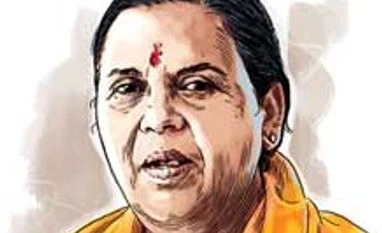Bharti had undertaken a fast in 2011 in Uttarakhand demanding a review of hydropower projects especially in the eco-sensitive Himalayan region, enactment of a law in Parliament declaring Ganga as a national heritage, and the withdrawal of proposal of shifting ancient Dhari Devi temple in Garhwal region due to the construction of a 330 MW Alaknanda project.
According to Anil P Joshi, founder of HESCO, a Dehradun-based NGO, working on a plan to rejuvenate streams and rivulets in the Himalayas, has asked the prime minister to focus on all those rivers which are rain-fed but have lost their identity due to pollution and other reasons.
More From This Section
“Ganga is a snow-fed river. But we are concerned about all those rivers which are rain-fed and are highly polluted or already dead,” said Joshi, a recipient of Padmashree.
Joshi, who is credited for undertaking cycle yatras in the country, said he has seen at least 57 rivers across the country, which are almost dead. “We welcome any step to clean the Ganga but Modi ji should also be concerned about other rivers,” said Joshi.
On the other hand, the state government, preparing to fight a legal battle in the Supreme Court on the hydel projects, is studying the implication of the new clean Ganga Ministry on the hydropower sector in the state.
The Uttarakhand cabinet last week decided to move the Supreme Court to plead for the clearance of the hydel projects which were banned after the last year’s June deluge in the hill state. Under the cabinet decision, the government will hire top advocates to fight its case before the Apex court for allowing the construction of the hydel projects in the wake of the acute power shortage.
“We don’t think that the new ministry will have any influence on the hydel projects since the case is pending before the Supreme Court,” said Avadhash Kaushal, chairperson of RLEK, a Dehradun-based NGO which has also approached the apex court seeking clearance for all the hydel projects in the state.
)